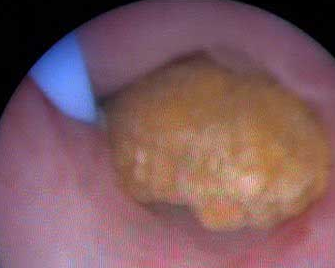Scientific Editor: Editorial Board ISUD website
- What is Ureterolithotripsy (URS)?
- When is URS performed?
- What sort of preparation is required?
- How is URS performed?
- What about after the procedure?
- What is the effect of URS on patient’s quality of life?
What is Ureterolithotripsy (URS)?
Ureterolithotripsy is an endosopic procedure to fragment and remove ureteral stones with the use of a telescopic camera (ureteroscope).
When is URS performed?
Ureterolithotripsy is performed to remove stones, smaller or larger than 5mm, that are located in the ureter, obstruct the kidney and cannot be eliminated on their own from the body (after some considerable time).
What sort of preparation is required?
Standardized preparation is carried out in hospital.
In case you are on anticoagulant therapy or have active urinary tract infection, you should consult your physician.
How is URS performed?
Ureterolithotripsy is performed under general anesthesia, with the patient sleeping throughout the procedure. Initially, a flexible guide wire is inserted to the ureter through a cystoscope, moving from the bladder all the way down to the kidney, under the guidance of a radioscopic device. Then, a special telescopic camera, the ureteroscope, is inserted to the ureter to locate and fragment the stone with the use of a laser or ballistic device. Stone fragments are removed with the use of special instruments. At the end of the procedure, a stent (ureteral catheter) is usually placed to the ureter and a catheter to the bladder. The bladder catheter is removed on the following day and the patient can return home.
What about after the procedure?
Once the procedure is completed, the patient has an X-ray to check the position of the ureteral catheter and whether there are any residual stone fragments.
Upon discharge from hospital, you will be given specific written instructions about:
- when it is safe to restart your anticoagulant therapy
- when it is safe to resume to intense physical activity and work
- what antibiotic regimen to take
- when to have ureteral catheter removed (usually after 15-30 days)
What is the effect of URS on patient’s quality of life?
You should drink plenty of fluids so that urine clears up. Full recovery usually takes at least 10 days and you will be able to resume to your work after a few days. You may feel some mild symptoms while urinating due to the ureteral catheter. These symptoms will subside a few days later.


